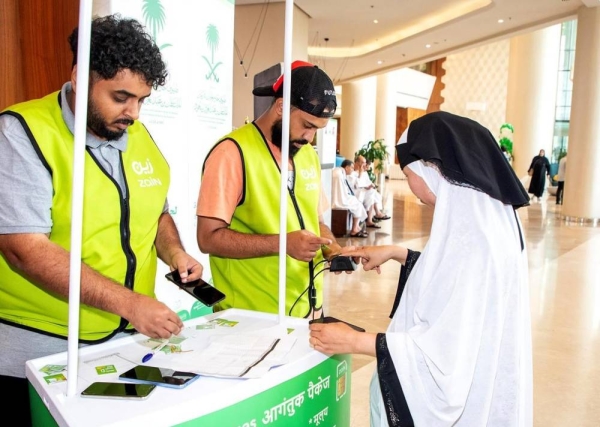In a move set to revolutionize the pilgrimage experience, the Kingdom of Saudi Arabia has unveiled a cutting-edge initiative allowing international Hajj and Umrah pilgrims to activate eSIM cards seamlessly upon arrival. This strategic development is part of a broader digital transformation effort led by the Saudi Communications, Space and Technology Commission (CST), in partnership with the Ministry of Interior and licensed telecom operators.
Under the new system, pilgrims can now pre-order and activate eSIM cards through mobile applications provided by Saudi telecom operators—completely eliminating the previous need to visit physical stores or wait until reaching their accommodations. This initiative ensures uninterrupted mobile connectivity from the moment pilgrims touch down in Saudi Arabia, a vital service for both personal use and emergency communications, especially during the spiritual rites.
The eSIM activation process leverages the Saudi government’s digital identity platform, Absher, where facial biometric verification is conducted remotely. This measure not only expedites the registration process but also enhances security by confirming the identity of users through advanced digital recognition technology.
Pilgrims from countries including Nigeria, which annually sends tens of thousands of faithful to the holy cities of Makkah and Madinah, are expected to benefit significantly from this streamlined process. Nigerian travel agencies and Hajj boards have long expressed concerns over communication delays upon arrival in the Kingdom—a challenge that this innovation directly addresses.
According to the CST, this transformation is anchored in Saudi Arabia’s Vision 2030 agenda, which aims to leverage technology to enrich visitor experience, promote efficiency in services, and ensure a smoother, safer pilgrimage for all. By allowing eSIMs to be issued and verified before pilgrims even board their flights, the Saudi authorities are taking proactive steps to reduce congestion and long queues at airport telecom kiosks, a common scene during peak pilgrimage periods.
With this development, pilgrims can stay connected to loved ones, receive instant updates from Hajj organizers, and access digital navigation tools across the holy sites—all without the delays or complications that previously hindered communication. The integration of facial recognition through Absher further underscores Saudi Arabia’s commitment to a secure and futuristic digital ecosystem.
This move is not only a major convenience but also a bold step towards making religious tourism in Saudi Arabia more efficient and tech-driven. For Nigerian pilgrims and others across the globe, it means faster access, fewer hassles, and a more connected spiritual journey in the heart of Islam’s holiest land.

